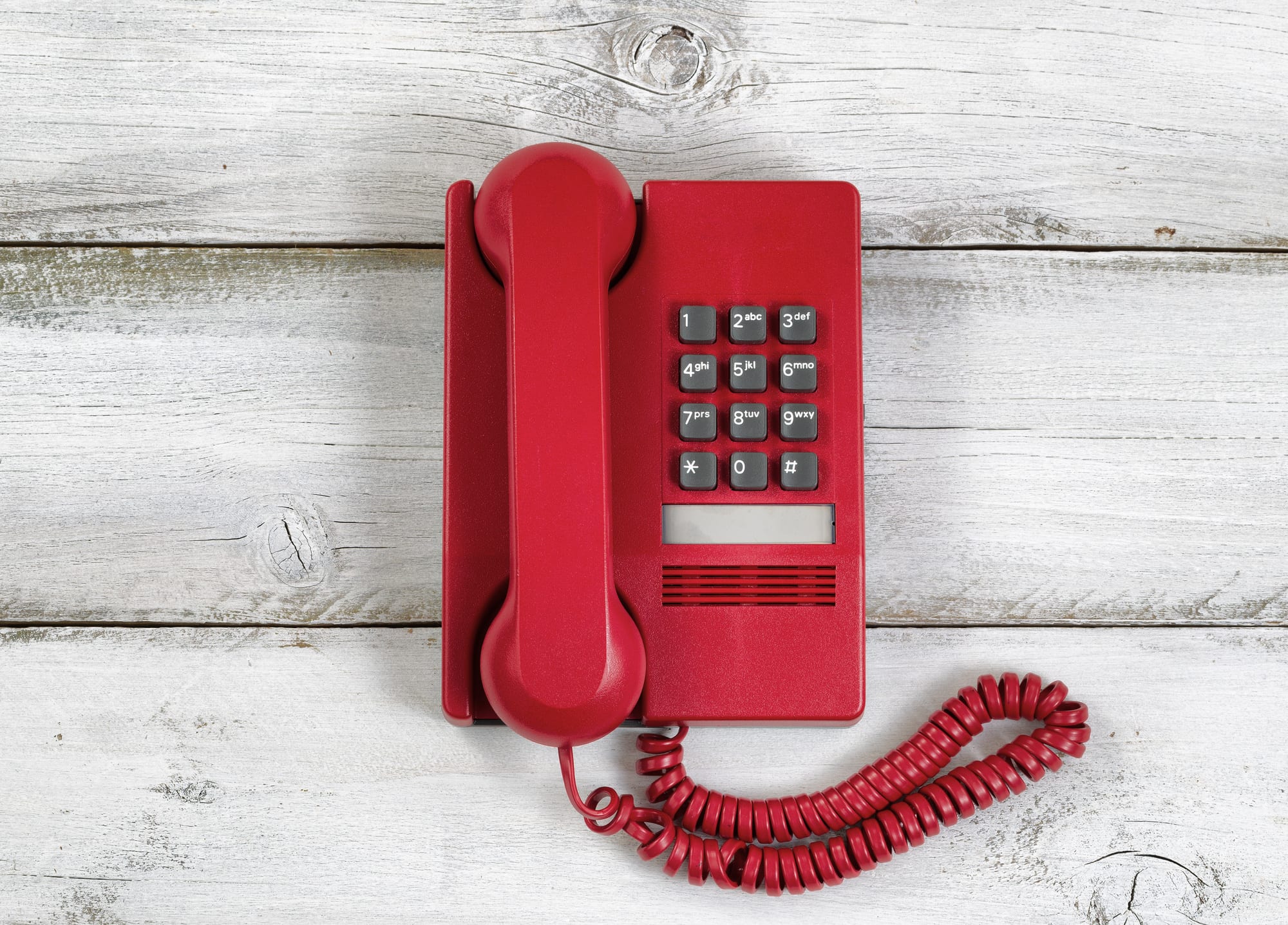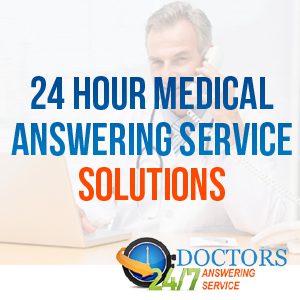
The Importance of After-Hours Answering Services in Medical Emergencies
In the realm of healthcare, the assurance of continuous availability can make a significant difference, especially during medical emergencies. After-hours medical answering services have become an indispensable asset for medical practices, hospitals, and healthcare providers. This blog post explores the critical role these services play and why they are essential in today’s healthcare landscape.
The Unpredictability of Medical Emergencies
Medical emergencies do not adhere to a 9-to-5 schedule. They can occur at any time, making it crucial for healthcare providers to be prepared and accessible. After-hours answering services ensure that no call for help goes unanswered, regardless of the time. When it comes to healthcare, being prepared for the unexpected is not just a good practice; it’s a necessity. After-hours answering services have become crucial for medical practices, offering a safety net for those unpredictable moments. Let’s dive deeper into the world of medical emergencies and understand why having your medical practice reachable around the clock is so vital.
The Reality of Medical Emergencies
Picture this: It’s late at night, way past the closing hours of most medical practices. Someone experiences sudden chest pain that could signal a heart attack, or a worried parent notices their child has developed a high fever and unusual rash. These scenarios don’t adhere to regular business hours. They’re unpredictable, and they demand immediate attention.
Real-Life Examples of Emergencies
Think about the diverse range of emergencies that can occur:
- A diabetic patient might experience unexpected blood sugar drops.
- An individual with asthma could have a severe attack.
- Elderly patients could face acute complications like strokes or falls.
In each of these situations, time is of the essence. The sooner a patient gets guidance or assurance, the better the chances of a positive outcome.

The Critical Role of Accessibility
Now, let’s talk about why being reachable is a game-changer. When your medical practice is accessible after hours, you’re offering more than just medical advice; you’re providing peace of mind. Patients know that they’re not alone, and help is just a phone call away. This accessibility can be the difference between a resolved situation and one that escalates due to delay or uncertainty.
Beyond Emergencies: The Comfort of Connection
It’s not just about the critical emergencies, though. Sometimes, a patient might just need reassurance or guidance on medication at odd hours. This kind of support is invaluable, especially for those managing chronic conditions or mental health issues.
In the unpredictable landscape of healthcare, an after-hours answering service is like a lighthouse in the dark – a beacon of help and hope. It ensures that your practice is always connected to those who need it the most, at times when they feel most vulnerable. Remember, in the world of healthcare, every call could be a lifeline. Ensuring your medical practice is reachable around the clock isn’t just good practice; it’s a critical component of patient care in today’s world.
Bridging the Communication Gap With After-Hours Answering Services
After-hours answering services act as a vital communication bridge between patients and healthcare providers. They ensure that urgent calls are promptly attended to, providing reassurance to patients and their families in times of need.
Imagine it’s a quiet Wednesday evening. Most businesses are closed, the streets are calm, but in someone’s home, there’s a situation brewing. Maybe it’s a senior citizen who’s feeling dizzy and disoriented, or a parent whose child has just had an allergic reaction. In moments like these, the gap between the patient and medical guidance can feel like a chasm.
Closing the Distance When It Matters Most
This is where after-hours answering services step in, bridging that crucial gap. They act as the critical link, connecting worried patients with the medical guidance they need. It’s not just about answering a call; it’s about providing a lifeline at a time when every second counts.
The Voice of Calm in a Sea of Anxiety
Let’s talk about the person on the other end of the line. These trained professionals are more than just operators; they are the voice of calm and reassurance. They’re trained to handle these situations with empathy and professionalism, ensuring that the patient feels heard and cared for.
Guiding Patients to the Right Action
But it’s not just about offering a listening ear. These services are adept at guiding patients through immediate steps they can take, whether it’s advising on first aid measures or helping them decide if a trip to the ER is necessary. This guidance can be crucial in preventing a situation from worsening.
The Benefits Extend Beyond Emergencies
And it’s not just emergency scenarios. After-hours services play a vital role in handling routine queries too. Maybe someone needs clarity on medication dosage or has a question about a scheduled procedure. These services ensure that such queries are addressed promptly, preventing unnecessary anxiety and confusion.

Building Trust Through Continuous Availability
By ensuring that your medical practice is reachable after hours, you’re building a foundation of trust with your patients. They know that whether it’s a critical emergency or a minor concern, your practice is there to support them. This continuous availability strengthens the patient-practitioner relationship, reinforcing the idea that patient care extends beyond the confines of regular office hours.
In a world where medical needs don’t clock out at 5 PM, after-hours answering services are not just a convenience; they are a necessity. They bridge the communication gap, bringing medical practices closer to their patients when it matters the most. In doing so, they not only provide immediate assistance but also build a network of trust and reassurance that is invaluable in healthcare.
Enhanced Patient Care
Providing prompt responses to emergency calls is a direct reflection of a healthcare provider’s commitment to patient care. These services allow for immediate attention to critical situations, potentially saving lives and improving health outcomes.
The Role of Technology in After-Hours Services
Modern after-hours answering services are equipped with advanced technology, enabling efficient call handling, message forwarding, and in some cases, direct routing to on-call medical personnel.
In the ever-evolving landscape of healthcare, technology plays a starring role, especially when it comes to after-hours services. It’s fascinating how technology has transformed these services from simple call answering to sophisticated systems that ensure no patient need goes unnoticed.
The Technological Backbone of Modern Answering Services
Think about it: a patient calls after hours, and instead of reaching a busy signal or leaving a voicemail in the void, they’re greeted by an intelligent system equipped to handle their concerns. This is where the magic of technology comes in. Advanced telecommunication systems, AI-driven interfaces, and secure databases work together to create an efficient and responsive answering service.
AI and Machine Learning: Not Just Buzzwords
Let’s delve a bit into AI and machine learning. These aren’t just trendy buzzwords; they’re revolutionizing how after-hours services operate. AI systems can intelligently route calls based on urgency, caller history, and even specific symptoms mentioned. This means a patient with a potentially serious issue gets prioritized automatically.
Secure Data Handling: A Non-Negotiable Aspect
In the sensitive world of healthcare, patient data security is paramount. Modern answering services use secure, HIPAA-compliant systems to ensure that all patient interactions are protected. This commitment to data security is more than just a compliance checkbox; it’s a cornerstone of patient trust.
Integration with Medical Systems: Seamless Continuity
One of the most significant advancements is the integration of answering services with existing medical practice systems. Imagine a scenario where the information from an after-hours call is directly fed into the patient’s medical record, providing a seamless continuum of care. This integration means that when the patient follows up the next day, their doctor is already informed and prepared.

Remote Monitoring and Assistance
For chronic patients or those in remote areas, after-hours services equipped with remote monitoring capabilities can be life-saving. They can provide guidance based on real-time data, ensuring timely intervention even before a situation becomes critical.
The Human Touch Augmented by Technology
While technology plays a crucial role, it’s important to remember the human element. The blend of advanced technology with the empathetic touch of human operators creates a service that’s not only efficient but also caring and personalized.
The role of technology in after-hours answering services is a game-changer in the healthcare industry. It ensures that patients receive timely, efficient, and secure assistance, regardless of the hour. As technology continues to advance, we can only expect these services to become more integral to providing exemplary patient care.
HIPAA Compliance and Patient Privacy in After-Hours Call Services
One of the primary concerns in healthcare communication is patient privacy. After-hours answering services are HIPAA-compliant, ensuring that all patient information is handled with the utmost confidentiality.
In the world of healthcare, the confidentiality and security of patient information are not just important—they’re mandated by law. This is where HIPAA compliance comes into play, especially in the context of after-hours call services. Let’s unpack why this is so crucial and how it’s meticulously upheld.
Understanding HIPAA in the Realm of Call Services
HIPAA, or the Health Insurance Portability and Accountability Act, sets the standard for protecting sensitive patient data. Any service that handles patient information must ensure that all the necessary physical, network, and process security measures are in place. For after-hours call services, this isn’t just a compliance requirement; it’s a foundational aspect of their operation.
The Mechanics of Protecting Patient Privacy
So, how do these services protect patient privacy? It starts with robust training programs for all operators, ensuring they understand the importance of confidentiality and the specifics of HIPAA regulations. But it doesn’t stop there. Technology plays a significant role too. Secure, encrypted communication channels are used to handle all patient interactions, ensuring that data is not just confidential but also protected against any unauthorized access.
Regular Audits and Updates: Staying Ahead of the Curve
In the fast-paced world of technology and cybersecurity, complacency is not an option. That’s why after-hours call services regularly undergo audits and updates to their security protocols. This proactive approach ensures that they stay ahead of evolving threats and continue to provide a safe harbor for patient information.
Building Patient Trust Through Security
When patients know that their conversations and data are protected by HIPAA-compliant services, it builds a higher level of trust. They can communicate freely, without the fear of their personal health information being compromised. This trust is crucial, not just for the patient’s peace of mind but also for the effectiveness of the medical advice and care they receive.
A Collaborative Effort for Compliance
It’s also worth noting that maintaining HIPAA compliance is a collaborative effort. After-hours call services work closely with healthcare providers to ensure that all aspects of patient communication and data handling meet the required standards. This collaborative approach ensures a unified front in protecting patient privacy.

Reducing the Strain on Emergency Rooms
The impact of after-hours medical answering services extends beyond individual patient care; they play a significant role in the broader healthcare ecosystem, particularly in reducing the strain on emergency rooms. Let’s break down how these services are making a difference:
Triage and Initial Assessment
- Guided Triage: After-hours services provide initial triage for patients, helping them determine the severity of their situation. This can often prevent unnecessary ER visits.
- Symptom Assessment: Call operators, often with medical training, can assess symptoms over the phone and advise on the best course of action – whether it’s a visit to the ER, waiting for regular office hours, or simple home care.
Information and Reassurance
- Immediate Information: In situations where anxiety or panic can lead to rushed decisions, having immediate access to a medical professional can be invaluable.
- Reassurance and Guidance: Sometimes, all a patient needs is reassurance and professional guidance on how to handle a non-critical medical issue, which can be effectively provided by the answering service.
Efficient Use of Healthcare Resources
- Avoiding Overcrowding: By reducing unnecessary ER visits, after-hours services help in managing patient flow, ensuring that emergency rooms are available for truly urgent cases.
- Resource Optimization: Emergency rooms can then optimize their resources for critical care, improving overall healthcare efficiency and patient outcomes.
Continuity of Care
- Follow-up Coordination: These services can also assist in scheduling follow-up appointments, ensuring continuity of care for patients who need further medical attention.
- Medical Record Integration: By integrating call information into patients’ medical records, they ensure that the attending physicians are well-informed about the after-hours interactions.
Supporting Overburdened ER Staff
- Reducing Burnout: By diverting non-emergency cases, after-hours services contribute to reducing the burden and potential burnout of ER staff.
- Improved Patient Care: This, in turn, allows ER professionals to focus more effectively on the patients who require immediate and intensive care.
After-hours medical answering services do more than just provide a stopgap for healthcare when the regular office is closed. They are a crucial cog in the healthcare machine, significantly reducing the strain on emergency rooms and ensuring that resources are allocated efficiently and effectively.
Supporting Telehealth Services
As telehealth becomes more prevalent, after-hours answering services facilitate seamless communication, ensuring that patients receive the care they need, even remotely.

Are Medical Answering Services a Cost-Effective Solution for Healthcare Providers?
In the healthcare industry, where budget constraints are a common concern, the cost-effectiveness of any service is a critical consideration. So, let’s explore how medical answering services are not just a practical solution but also a financially savvy choice for healthcare providers.
Reducing the Need for In-House Staff
- Minimizing Staffing Costs: Hiring full-time staff to manage after-hours calls can be prohibitively expensive. Medical answering services eliminate the need for additional in-house staff during non-business hours, weekends, and holidays.
- Avoiding Overtime Expenses: For many practices, covering after-hours calls often means paying overtime to in-house staff. Outsourcing these calls can significantly reduce these additional labor costs.
Leveraging Specialized Expertise
- Access to Trained Professionals: When you opt for a medical answering service, you gain access to a team of professionals trained specifically in medical call handling. This means high-quality service without the overhead of training and maintaining an in-house team.
- No Need for Additional Infrastructure: Setting up an in-house call center requires investment in telecommunications infrastructure. A medical answering service provides all necessary technology and infrastructure, saving healthcare providers this substantial upfront cost.

Efficiency and Scalability
- Adaptability to Call Volume: Whether you’re dealing with seasonal spikes or unexpected surges in calls, medical answering services can quickly adapt to changing needs without additional costs.
- Scalability for Growth: As a practice grows, so does the volume of calls. An answering service can effortlessly scale up to meet increased demand, providing a flexible solution that aligns with the practice’s growth trajectory.
Improved Revenue Cycle Management
- Reducing Missed Appointments: With after-hours scheduling and reminders, medical answering services can help reduce the number of missed appointments, directly impacting revenue positively.
- Efficient Appointment Scheduling: Streamlined scheduling ensures optimal use of resources, leading to better patient flow and potentially more appointments.
Indirect Financial Benefits
- Enhancing Patient Satisfaction: By providing reliable after-hours support, practices can improve patient satisfaction and retention, indirectly boosting revenue.
- Preventative Care Guidance: Effective triage and guidance can prevent the worsening of conditions that might later result in more costly treatments.
Medical answering services offer a cost-effective and efficient solution for healthcare providers. They not only alleviate the financial burden of staffing and operating an in-house call center but also contribute to better resource management and patient care. In an industry where financial prudence is as important as quality care, these services strike the perfect balance. At 24×7 Doctors Answering Service, we understand the urgent need to be accessible to your patients and we are prepared to guide you with expert advice and competitive after-hours answering service quotes.
